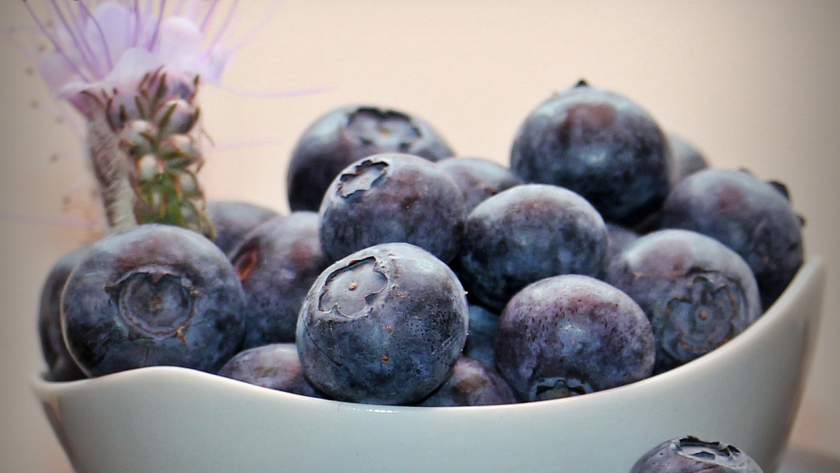We all know the delicious taste of blueberries, but have you ever wondered about their safety when found in the wild? As someone who loves to forage for wild fruits and berries, I understand the importance of knowing which ones are safe to consume.
Wild blueberries, also known as lowbush blueberries, can be found growing in wooded areas or open fields throughout North America. But before you go out and start picking these tasty treats, it’s important to understand their safety.
In this article, we will explore the safety of wild blueberries and everything you need to know before consuming them. From foraging tips to cleaning and cooking techniques, we will provide a comprehensive guide on how to safely enjoy these delicious berries.
So whether you’re an avid forager or just curious about wild blueberries, keep reading to discover everything you need to know about their safety and enjoyment.
Key Takeaways
- Wild blueberries are safe to eat when consumed properly, meaning they are washed and cooked before eating.
- The levels of pesticide residue in wild blueberries are generally very low or undetectable.
- It’s important to avoid any wild blueberries that appear spoiled or moldy.
- Foraging for wild blueberries can be a fun and rewarding activity, but it’s important to be respectful of the environment when picking them.
What are Wild Blueberries?
Wild blueberries are a tasty and nutritious fruit that grow naturally in the wild, bursting with flavor and antioxidants. These little berries have been enjoyed by people for centuries, and they’re still just as popular today.
Wild blueberries are often smaller than cultivated blueberries but pack a punch when it comes to nutrition. They contain high levels of vitamin C, fiber, and manganese. The benefits of wild blueberries go beyond just their taste and nutritional value.
Studies have shown that consuming these fruits regularly can help prevent certain diseases such as cancer, heart disease, and diabetes. The antioxidants found in wild blueberries may also help improve brain function and memory retention. So not only do these small but mighty berries taste great, but they’re also good for your overall health!
The Safety of Wild Blueberries
You may be curious about the potential risks associated with consuming wild blueberries found in nature. One concern is pesticide residue, as wild blueberries aren’t typically grown and harvested according to strict regulations like their cultivated counterparts. However, studies have shown that the levels of pesticide residue in wild blueberries are generally very low or undetectable.
Another potential health risk of consuming wild blueberries is the risk of foodborne illness from improper handling or contamination during harvesting and processing. To minimize this risk, it’s recommended to only consume properly washed and cooked wild blueberries and to avoid any that appear spoiled or moldy.
Overall, when consumed safely, wild blueberries can provide numerous health benefits such as anti-inflammatory properties and high levels of antioxidants.
Foraging for Wild Blueberries
It’s always thrilling to stumble upon a patch of fresh, juicy wild blueberries while on a hike or nature walk. Foraging for wild blueberries can be a fun and rewarding activity, but it’s important to know the best locations and techniques for finding them.
Here are four things to keep in mind when searching for these delicious treats:
-
Look for sunny areas with well-drained soil: Wild blueberries thrive in areas with plenty of sunlight and good drainage, so keep an eye out for open fields or meadows that fit this description.
-
Check the time of year: Wild blueberries typically ripen from July to September, so plan your foraging trip accordingly.
-
Keep an eye out for other berry bushes: Wild blueberry bushes often grow alongside other types of berry bushes like raspberries or blackberries, so pay attention to what else is growing nearby.
-
Be respectful of the environment: When picking wild blueberries, make sure not to damage the surrounding plants or disturb any wildlife habitats.
Cleaning and Preparing Wild Blueberries
After finding a batch of fresh, juicy wild blueberries, the next step is to clean and prepare them for consumption. Did you know that one cup of these berries contains only 84 calories?
To preserve their freshness, it’s important to store them in an airtight container or plastic bag in the fridge as soon as possible. This will help prevent moisture from accumulating on their surface and causing mold growth.
When it comes to washing techniques, it’s best to rinse them gently under cold water just before eating or cooking with them. Avoid soaking them in water, as this can cause the berries to become waterlogged and lose some of their flavor.
If you’re planning on freezing your wild blueberries for later use, make sure they are completely dry before transferring them into a freezer-safe container. By following these simple guidelines, you can enjoy the delicious taste of fresh wild blueberries all year round!
Cooking with Wild Blueberries
Get ready to add some burst of flavor to your dishes with these deliciously juicy berries as you start cooking with them! Wild blueberries aren’t only tasty, but they also contain a wealth of nutrients that can benefit your health.
They’re a great source of antioxidants, which can help reduce inflammation and protect against chronic diseases like cancer and heart disease. Additionally, they’re low in calories and high in fiber, making them an excellent addition to any diet.
When it comes to incorporating wild blueberries into recipes, the possibilities are endless! From smoothies and salads to baked goods and sauces, there’s no shortage of ways to enjoy these sweet fruits.
One popular recipe is blueberry muffins, which make for a perfect breakfast or snack option. Another favorite is using wild blueberries in a summer salad tossed with spinach leaves, goat cheese crumbles, walnuts, and balsamic vinaigrette for a refreshing burst of flavors.
Whatever dish you choose to create with wild blueberries will surely be a hit both nutritionally and taste-wise!
Other Uses of Wild Blueberries
When it comes to wild blueberries, their uses go beyond just being a delicious and nutritious food. In fact, they’re known for their medicinal properties and have been used for centuries in traditional medicine.
Additionally, the antioxidants found in wild blueberries make them a popular ingredient in cosmetics and skincare products.
Medicinal Properties
You’ll be pleased to know that wild blueberries are a true powerhouse when it comes to their medicinal properties. Their abundance of antioxidants makes them an incredible ally in the fight against illness and disease.
In fact, studies have shown that consuming wild blueberries can improve heart health by reducing blood pressure and improving cholesterol levels. Additionally, these little berries have been linked to improved brain function and memory retention.
Scientific research has also revealed that wild blueberries may help prevent certain types of cancer, such as breast and colon cancer. They contain compounds that inhibit the growth of cancer cells and reduce inflammation in the body.
Furthermore, they’re an excellent source of fiber which supports digestive health by promoting regular bowel movements and preventing constipation. Overall, incorporating wild blueberries into your diet is a simple yet effective way to boost your immune system and promote overall wellness.
Cosmetics and Skincare
If you’re looking for a natural remedy to add to your skincare routine, look no further than wild blueberries. These tiny fruits are packed with antioxidants that can help protect your skin from free radicals and prevent premature aging.
Incorporating products made with wild blueberry extracts into your skincare regimen can nourish and hydrate your skin, leaving it feeling soft and supple. In addition to store-bought products, there are also many DIY recipes that incorporate wild blueberries.
For example, you can make a simple face mask by mashing up some fresh berries and mixing them with honey or yogurt. This can help exfoliate dead skin cells and leave your complexion glowing. Overall, incorporating wild blueberries into your skincare routine is an easy way to take advantage of their amazing benefits while avoiding harsh chemicals found in other beauty products.
Frequently Asked Questions
Can wild blueberries be harmful to pets if they consume them?
When it comes to pet safety, it’s important to be cautious of what they consume. While wild blueberries offer great nutrition and benefits for humans, they can be toxic for pets. Keep them out of reach to prevent any harmful accidents.
Are there any potential allergic reactions to wild blueberries?
If you have allergies, it’s possible to experience potential allergic reactions after consuming wild blueberries. Symptoms include hives, swelling, and difficulty breathing. Consult with a physician before eating wild blueberries if you have a known allergy.
How long do wild blueberries last once they are picked?
When it comes to preserving techniques, wild blueberries can last up to 2 years in the freezer. They’re perfect for culinary uses like smoothies, baking, and jams. Enjoy their sweet flavor without worrying about expiration dates!
Is it safe to forage for wild blueberries near roads or highways?
Foraging for wild blueberries near roads or highways can be unsafe due to potential roadside contaminants. In one case study, soil tests found high levels of lead and other toxins. It’s important to carefully consider the location before harvesting any wild food.
What is the best way to store wild blueberries for optimal freshness?
To ensure Proper Wild Blueberry Storage, keep them in a sealed container in the fridge for up to 10 days or freeze them for longer shelf life. Try Wild Blueberry Recipes like muffins, smoothies, and jams for added variety.
Conclusion
So, are wild blueberries safe to eat? I can confidently say yes! Wild blueberries offer numerous health benefits, from their high antioxidant content to their anti-inflammatory properties. They are a fantastic addition to any diet.
If you’re interested in trying your hand at foraging for wild blueberries, just be sure to do so responsibly. Respect the environment and only take what you need. And remember, always clean and prepare your berries properly before consuming them.
Whether you enjoy them fresh out of the bush or incorporated into your favorite recipes, wild blueberries are a tasty and nutritious choice.
In conclusion, don’t be afraid to venture out into nature’s bounty and try some wild blueberries for yourself. Your taste buds (and body) will thank you! As they say, "go ahead and take a walk on the wild side"- with some deliciously sweet and tangy wild blueberries in hand.




